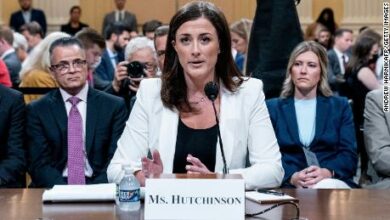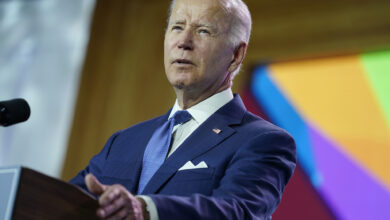Major secular political figures, announcing their withdrawal from the body writing the new constitution, said that passing the proposed constitution would be equivalent to signing off on Egypt’s downfall.
At a press conference on Sunday at the headquarters of the Wafd Party, the political forces warned that groups dominating the assembly are trying to pass the constitution hastily and without serious debate.
The resignations further complicate a drafting process delayed by bickering among Islamists and liberals, raising doubts whether the document would be ready by a 12 December deadline.
Amr Moussa, former Arab League secretary general and member of the Constituent Assembly, said the current draft would lead to Egypt’s downfall, of which secular forces could not be a part.
He stressed that his decision to withdraw is final. On Wednesday, Moussa had said he and other members had merely suspended their participation.
"We are not withdrawing to come back. What concerns us is the constitution, and this is our powerful message to them to draft the constitution differently."
Moussa described many articles as weak or incompatible with others.
Drafts of the constitution drawn up by the assembly so far indicate it will have more Islamic references than the previous constitution, worrying liberal-minded Egyptians as well as Christians, who make up about a tenth of the nation of 83 million. They fear the imposition of social restrictions on their lives.
However, Moussa said the question of Sharia was not his reason for withdrawing. He said Article 2, which designates Sharia as the main source of legislation, had been agreed upon, but that secular politicians were surprised by the introduction of another article giving Sharia a different meaning.
The important article stating that "the principles of Sharia" are the main source of legislation has remained unchanged from the old constitution. But a new draft article seeks to spell out what those principles are.
Representatives of three Christian churches have also said they were withdrawing their five total members from the assembly.
Moussa said his withdrawal was not to play politics, but to protest the articles of the constitution, not a particular person or group.
"The dispute appears in basic and key articles in the constitution — the articles that state the community and its powers."
Media personality Hamdy Qandil said, "We did not withdraw for political reasons, but we did for our own reasons, because when we discussed more than half of the articles of the constitution and we presented amendments, they were not taken into account."
The objections on the articles of the constitution, according to Qandil, came because it lacks many constitutional traditions such as achieving social justice and the goals of the 25 January revolution.
Constituent Assembly spokesperson Wahid Abdel Meguid, said, "We have reached a dead end, and consultations did not come to any conclusion."
Like Moussa, Abdel Meguid stressed: "Islamic Sharia being part of the principles of the constitution is not the issue, but we refused concepts alien to Sharia and to our society." He called those concepts "Taliban-like."
In addition, labor rights are not included in the constitution, according to Abdel Meguid, while the concerns of pensioners are inadequately addressed.
Regarding freedom of speech, Abdel Meguid said the draft constitution allows legislators to shut down newspapers with administrative decrees or judicial rulings.




